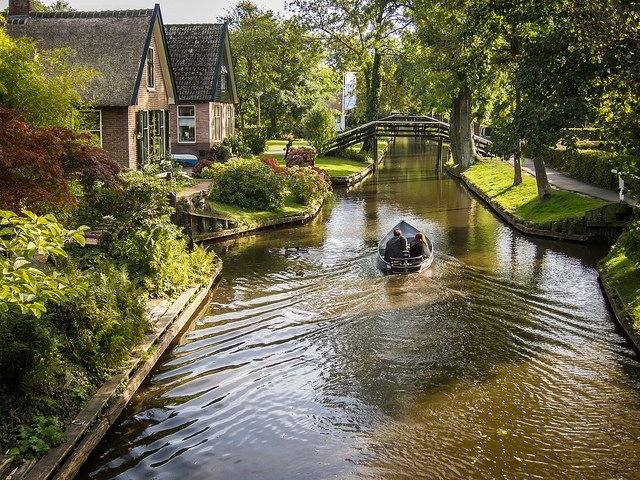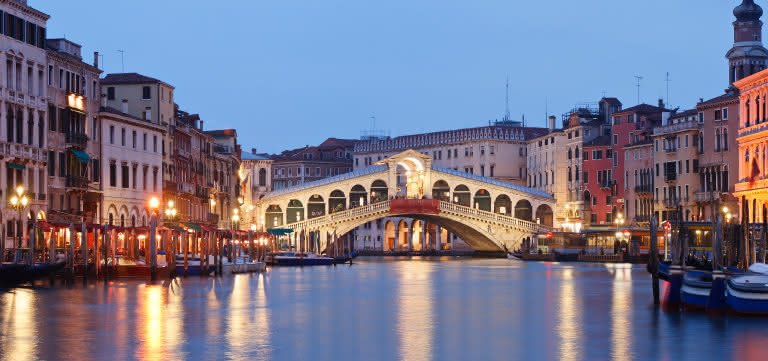The subsidence of Venice, one of the most beautiful and famous cities in the world, is well known not by reason of the magnitude of the ground movement but because it has seriously compromised the heritage and the safety of the city in relation of its small elevation above the sea.
Depending on the time span considered, different rates of the geological subsidence of the Venice area, generally ranging from 0.6 to 1.6 mm/yr, have been assessed by various authors1,2,3,4,5,6,7,8 using sediment core data and archaeological remains. During historical time, the loss in elevation of Venice was particularly severe in the last century, ~ 25 cm, i.e. 15 cm of subsidence mainly due to groundwater pumping in the nearby industrial area and 10 cm of eustacy. Subsidence and eustacy has both contributed to the loss of land elevation with respect to the mean sea level (or relative sea level rise, RSLR). Its quantification in Venice was obtained through various methodologies and not uniquely quantified9,10,11,12,13.
Considering the IPCC (International Panel on Climate Changes) mid-range A1B scenario and the recent land subsidence, the RSLR is expected to range between 17 and 53 cm by 210012. This means that the ground elevation of the historical center, which emerges only 90 cm above the mean sea, will be drastically reduced and consequently the frequency of “acqua alta” events, i.e. tides higher than 110 cm, will increase from the nowadays 4 times per year to a range between 20 and 25012. In order to protect the city and its lagoon environment from increased flooding, the multi-billion euro MOSE project is under construction since early 2000s. It consists of rows of mobile gates that will close the inlets connecting the lagoon to the Adriatic Sea when tide events higher than 110 cm are predicted. Large new structures have been already built and inlet jetties reshaped. Some works are located only 4 km far from the eastern tip of Venice.
During the last two decades, satellites instrumented with SAR (Synthetic Aperture Radar) sensors provided excellent data for detecting land displacements by interferometric processing. The use of this methodology opens new possibilities for a more accurate interpretation of the land subsidence. The first SAR analysis on Venice was carried out by DInSAR (Differential Interferometric SAR) and provided thousands of measurements much more than the few hundred benchmarks previously used by leveling14. More recently the application of Persistent Scatterer Interferometry (PSI)15,16 on C-band satellites has remarkably increased the number of measurable  targets, achieving accuracies comparable to that of leveling and permanent GPS. PSI has progressively reduced the use of in-situ traditional techniques to the calibration of the SAR-based methodologies17,18,19. An accurate quantification of the relative and differential movements of single churches, palaces, bridges has become possible with the launch of the new generation X-band sensors characterized by a higher spatial resolution and a shorter revisiting time than C-band. For instance at Venice, the settlement of the MOSE coastal infrastructures, locally up to −70 mm/yr, does not affect the historical center20,21,22.
targets, achieving accuracies comparable to that of leveling and permanent GPS. PSI has progressively reduced the use of in-situ traditional techniques to the calibration of the SAR-based methodologies17,18,19. An accurate quantification of the relative and differential movements of single churches, palaces, bridges has become possible with the launch of the new generation X-band sensors characterized by a higher spatial resolution and a shorter revisiting time than C-band. For instance at Venice, the settlement of the MOSE coastal infrastructures, locally up to −70 mm/yr, does not affect the historical center20,21,22.
Although the effect of groundwater pumping ended a few decades ago, a reliable and detail knowledge of the land subsidence affecting the historical center is even more important today due to the city vulnerability continuously increased over the years.
Today, the anthropogenic component of the land subsidence is only due to local, short-time interventions such as restoration works and inherent deformations of historical structures.
Based on these considerations the PSI outcomes are processed to distinguish between the two components of the present land subsidence of Venice. The longest time analysis (C-band dataset) are reasonably used for quantifying the natural component and the shortest analysis (X-band dataset) for highlighting the anthropogenic displacements. The higher pixel resolution of the X-band data enhances the detection of small-scale movements.


Hi! I am a robot. I just upvoted you! I found similar content that readers might be interested in:
http://www.nature.com/srep/2013/130926/srep02710/full/srep02710.html?WT.ec_id=SREP-704-20131001
I’m planning to go there soon
thank you very much
i wish you success
I with I live there for the rest of my life 😍😍😍
yes yes <3 <3
we wish all live in the place hhhhh